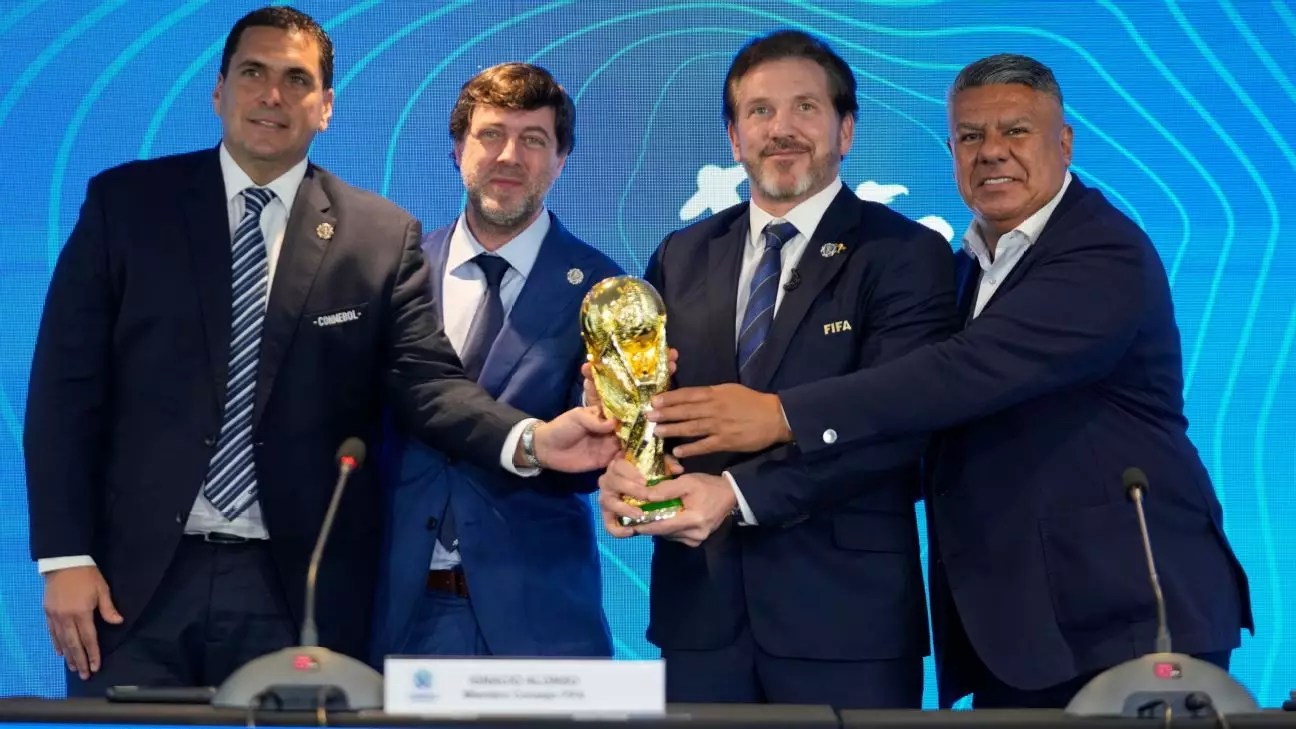The conversation surrounding the potential expansion of the men’s World Cup to 64 teams has sparked intense debate among soccer’s governing bodies, revealing fractures in the sport’s politics. UEFA president Aleksander Čeferin did not hold back his criticism, labeling the proposal as “a bad idea.” His remarks, made during a news conference following UEFA’s annual meeting in Belgrade, provided a glimpse into the governing body’s concern over the implications of such an expansion. Čeferin’s forthrightness signals that there is more at play than just numbers on a spreadsheet; it brings into focus the integrity of international competition itself.
Financial Interests Versus Competitive Excellence
The primary motivation behind FIFA president Gianni Infantino’s backing of the expanded format seems rooted in financial gain—an extension of the cash cow that is the World Cup. More teams mean more matches and wider global participation, which can translate into substantial revenue streams. Yet, this perspective is inherently flawed. While generating funds for development is essential, it should not come at the expense of the tournament’s quality. Critics warn that diluting the competitive nature of the World Cup by inviting weaker squads could result in a lackluster event filled with one-sided matches, ultimately disappointing fans who expect the highest caliber of play.
The Impact on Qualifying Dynamics
Čeferin’s criticisms also extend to the potential repercussions on the qualifying process for continental tournaments. With an expanded roster of teams in the World Cup, the value of individual qualifying matches is at risk. UEFA has meticulously redesigned its own qualifying format to accommodate the needs of 55 member nations, ensuring that each match holds significance and fosters competitive integrity. The inclusion of more teams could undermine this carefully constructed system, leading to an oversaturation that diminishes the prestige of qualifying for the World Cup.
Origin of the Proposal Raises Questions
The genesis of the 64-team proposal is also shrouded in mystery. Čeferin expressed his bewilderment over the lack of prior discussion surrounding the idea, particularly considering that the next World Cup is already being heralded as a complex endeavor, co-hosted across three continents. The sudden emergence of the proposal may reflect an impulsive reaction rather than a well-thought-out strategy for the future. If the intention is merely to celebrate a centenary without a solid foundation, then the sport risks muddling its own rich history.
A Call for Thoughtful Dialogue
It is essential that the sport’s leaders engage in meaningful discussions that prioritize both the competitive essence of the World Cup and the ambitions of international football. Instead of simply pushing for quantity, the focus should shift back to quality—reinforcing the very principles that have made the World Cup the pinnacle of international sport. The stakes are incredibly high, and the football community deserves leaders who are willing to defend its foundational values rather than chase fleeting financial gains.


Leave a Reply